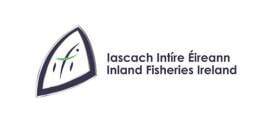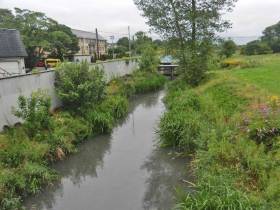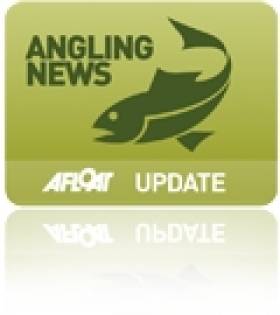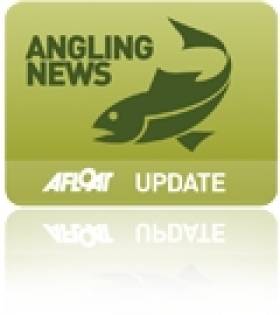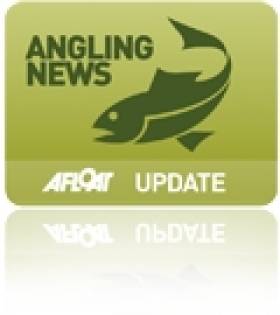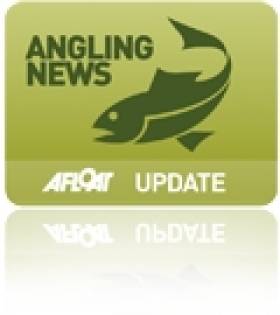Displaying items by tag: Tolka
The Irish Nautical Trust has launched the “Liffey Sweeper”, a new environmental vessel designed to collect large amounts of non-natural debris such as plastic, cans and bottles from the city’s waterways.
The newest addition to Dublin’s nautical fleet is part of the River Liffey Cleaning Project, the brainchild of Irish Nautical Trust Director Jimmy Murray, whose ambition is to remove all floating debris from the Liffey, the Dodder and the Tolka estuary.
“This is an ecological and environmental development research project which has been designed over the last two years to help prevent the accumulation of all non-natural debris such as plastics, cans and disposable coffee cups, and to stop it getting into the sea and the Dublin Bay biosphere, where it affects marine wildlife”, explains Jimmy Murray.
The Liffey Sweeper will initially operate four days a week, sweeping from the upper part of the River Liffey at Butt Bridge to the mouth of the River and Clontarf area, including the basins and all the shipping berths within Dublin Port.
 Once lifted from the water, debris is separated and sorted into designated recycling bins and the balance of the assorted materials Photos: Conor McCabe
Once lifted from the water, debris is separated and sorted into designated recycling bins and the balance of the assorted materials Photos: Conor McCabe
Fitted with a deep cage, the Liffey Sweeper is able to catch a range of material from the water, including floating plastic and debris just below the surface. Once lifted from the water, debris is separated and sorted into designated recycling bins and the balance of the assorted materials, i.e. that which cannot be recycled, is removed by a licenced contractor for treatment before disposal at the Covanta Waste to Energy Treatment Plant on Poolbeg, while any organic matter collected is returned to the water.
 Fitted with a deep cage, the Liffey Sweeper is able to catch a range of material from the water Photo: Conor McCabe
Fitted with a deep cage, the Liffey Sweeper is able to catch a range of material from the water Photo: Conor McCabe
Its launch follows a successful grant of €180,000 from the Dublin Waste to Energy Community Gain Projects Grant Scheme which enabled the Irish Nautical Trust to purchase the former environmental vessel from the UK. The pilot project is further supported involving collaboration between the Irish Nautical Trust, Dublin Port Company, University College Dublin, School of Biology and Environmental Science, Dublin Waste to Energy/Covanta, and Dublin City Council. The Irish Nautical Trust is currently part of Google’s Employment Task Force which works with a wide range of local community groups and has also approached Google as a potential partner for the project.
The launch coincides with Earth Day 2021, which continues its focus on the ongoing climate emergency, with events taking place virtually due to Covid-19 between April 20th-22nd. This year’s theme of “Restore Our Earth” sees Jimmy and the Liffey Sweeper urging people to leave no trace while enjoying the amenities of Dublin Bay.
 Operating four days a week, the new vessel will sweep from the upper part of the River Liffey at Butt Bridge to the mouth of the River and Clontarf area, including the basins and all the shipping berths within Dublin Port, preventing debris from reaching the sea and the Dublin Bay Biosphere Photo: Conor McCabe
Operating four days a week, the new vessel will sweep from the upper part of the River Liffey at Butt Bridge to the mouth of the River and Clontarf area, including the basins and all the shipping berths within Dublin Port, preventing debris from reaching the sea and the Dublin Bay Biosphere Photo: Conor McCabe
“We’ve noticed more disposable coffee cups, plastic bottles and food packaging appearing in the River during lockdown. With bank holiday weekends and the summer months approaching, I would really encourage people to plan ahead and be prepared to bring your rubbish home. Everyone’s contribution adds up and can make a difference”, said Jimmy Murray.
“We call it the river that never sleeps. Every six hours, the tide changes and even while we are asleep, whatever is coming down the Liffey will float down and out to sea or else get caught up around port berths, slipways, steps and other areas where it can get trapped. Our goal is to prevent that from happening by gathering enough data on the debris in the water to put together a programme to prevent any debris entering the Dublin Bay Biosphere.”
“This project is badly needed,” Jimmy concludes. “The Liffey is an extension of the streets; a lot of the waste that is on the city’s streets ends up in the river, whether it is thrown in or blown in by nature and being carried out to sea. This project is a win for the environment, the beaches, the wildlife and the local communities, in terms of cleaning them up and hopefully creating employment with an expanded programme in the near future.”
Fish Kill Confirmed On 5km Stretch Of Dublin’s River Tolka
#Angling - Inland Fisheries Ireland (IFI) has confirmed a fish kill on the River Tolka that was reported earlier this week.
Fisheries investigators found dead fish over a 5km stretch of the river in the Tolka Valley Park area, following the report on Tuesday 18 September.
According to IFI, a “significant source of polluting material has been identified” and samples were taken for analysis.
In the meantime “relevant parties are undertaking appropriate remedial action” as the investigation continues.
Also this week, Minister of State for inland fisheries Seán Kyne committed €300,000 for the removal of an invasive waterweed in Lough Corrib.
IFI will begin operations in 2019 to remove the aquatic plant Lagarosiphon major from the lough, after successful cutting and picking operations over the summer months this year.
In addition to these management operations, IFI commenced a research project last month which aims to establish the current distribution of L major in Lough Corrib.
New innovative methods are being trialled to survey the aquatic plant as part of this research. These include unmanned aerial drones, sub-aquatic remotely operated vehicles (ROVs) and modern remote sensing techniques.
Speaking as he visited IFI’s stand at the National Ploughing Championships, Minister Kyne also asked the fisheries body and his department to continue liaison with the National Parks and Wildlife Service (NPWS), who have responsibility for the legislation covering Alien Invasive Species (AIS).
Tolka Fish Kill Caused By Tyre Blocking Sewer
#FishKill - A car tyre blocking a sewer led to a major fish kill on the River Tolka in West Dublin this week.
According to TheJournal.ie, as many as 500 fish were killed over a 3km stretch of the waterway between Mulhuddart and Blanchardstown after the blockage caused a manhole cover to overflow into the river.
Local anglers reported the incident to Inland Fisheries Ireland on Tuesday evening (18 July), as RTÉ News reports.
Since then, local angling shop proprietor Derek Talbot has described it as an “absolute disaster” for West Dublin’s angling community.
The Tolka previously suffered an extensive fish kill almost exactly three years ago, affecting thousands of fish downstream from Finglas Road in Glasnevin.
#fishkill – Inland Fisheries Ireland and Dublin City Council are today (23.07.14) continuing to monitor the River Tolka following a significant pollution incident which occurred yesterday, Tuesday 22nd July.
A definite line of inquiry is being followed in relation to the source of the pollution incident which resulted in an extensive fish kill in the river.
Further samples have been taken and analysis is ongoing.
Dublin City Council has also removed a boom wall barrier which it erected across the River Tolka at Griffith Park yesterday to contain the pollutant as this is no longer required.
Inland Fisheries Ireland (IFI) has a confidential hotline number to enable members of the general public to report incidents - 1890 34 74 24 or 1890 FISH 24. This phone line is designed to encourage the reporting of incidents of illegal fishing, water pollution and invasive species.
Fish Kill on Dublin's River Tolka to be Investigated
#fishkill – Inland Fisheries Ireland and Dublin City Council are today (22.07.14) investigating an extensive fish kill on the River Tolka in Dublin City.
The latest indications are that the fish kill extends from an area in the vicinity of Finglas Road Bridge for a considerable distance downstream. The full extent of the kill has yet to be quantified.
Inland Fisheries Ireland and Dublin City Council are continuing their emergency response and associated investigations in an effort to establish the source of any contaminating material that may have caused this major pollution event.
Inland Fisheries Ireland (IFI) has a freefone number to enable members of the general public to report incidents - 1890 34 74 24 or 1890 FISH 24. This phone line is designed to encourage the reporting of incidents of illegal fishing, water pollution and invasive species.
Atlantic Salmon on 'Red List' of Endangered Species
Atlantic salmon have joined four other native fish on a 'red list' of endangered species compiled by the Ireland's fisheries and wildlife agencies.
As the Irish Independent reports, one third of the State's 15 native fish species are considered endangered or vulnerable.
One of the worst hit is the European eel, which was found to be critically endangered.
In a report published yesterday, a number of threats were highlighted such as water pollution, invasive species, overfishing, poor river management and climate change.
According to The Irish Times, the Red List was compiled by scientists from organisations across the island including Inland Fisheries Ireland, the National Parks and Wildlife Service, the Northern Ireland Environment Agency and the National Biodiversity Data Centre.
The news comes just a few days after Dublin celebrated the return of wild Atlantic salmon to the River Tolka after more than a century.
The Irish Times has more on the story HERE.
Salmon Return to the Tolka After More Than a Century
Dublin has yet another thing to celebrate with the news that wild Atlantic salmon have returned to what was long regarded as the dirtiest of the capital's inland waterways.
The Irish Independent reports that the fish have been spotted along the banks of the Tolka between Glasnevin and Finglas for the first time in at least 100 years.
Efforts to clean the river in recent years, as well as the removal of man-made weirs, are thought to have aided the recovery of the Tolka, which now provides plentiful nutrients for migratory fish.
Atlantic salmon in particular are considered by scientists to be a 'bio-indicator' in that they require a very high standard of water, so their presence in a given area defines it as a healthy environment.
The Tolka joins the Liffey and the Dodder in the list of Dublin rivers hosting thriving stocks of young fry in what has been a bumper year for salmon angling across the country.
The Irish Independent has more on the story HERE.


























